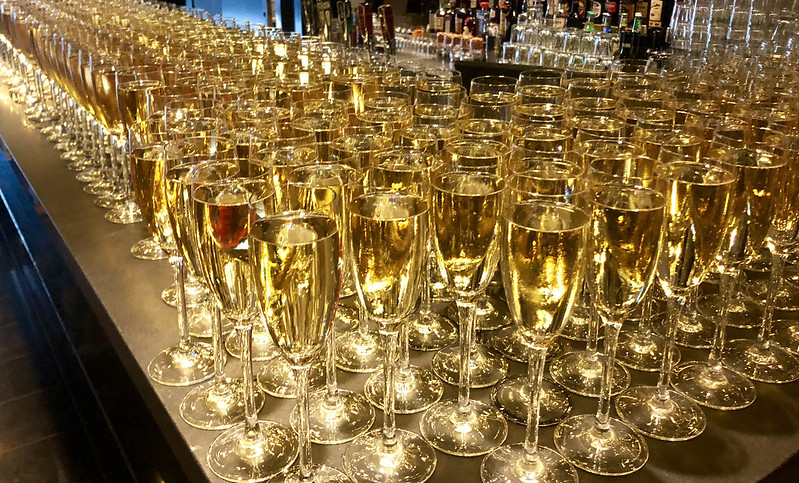Alcohol Catering with Florida Quota License

The next reception you attend might be catered by your favorite bar.
Alcohol Catering: Bringing the Bar to You
Florida’s Alcoholic Beverage Law authorizes alcohol catering by two kinds of licenseholders. An alcohol beverage catering license (13CT) is available to licensed food caterers, and allows them to sell and serve alcoholic beverages at events along with food catering (see Working with Beverage Caterers). In addition, a consumption on premises quota license (4COP or higher) allows the licenseholder to sell and serve alcoholic beverages at an event at which food is catered by a separate licensed caterer.
Alcohol beverage catering is the subject to Florida Statutes Section 561.20(2)(a)5., which was added to the Beverage Law in 2000. Most of this subparagraph is focused on creation of the alcohol catering license. However, near the middle of this dense subparagraph is the following statement:
Notwithstanding any law to the contrary, any vendor licensed under s. 565.02(1) subject to the limitation imposed in subsection (1), may, without any additional licensure under this subparagraph, serve or sell alcoholic beverages for consumption on the premises of a catered event at which prepared food is provided by a caterer licensed under chapter 509.
Florida Statutes Section 561.20(2)(a)5. (2019).
This single sentence confirms that COP quota licenseholders are authorized to provide beverage catering. Moreover, it is clear that these licenseholders are not required to also provide food catering, as long as another party is providing food catering at the event.
Events Serving Expensive Alcohol Can Work with a Bar
Unlike licensed caterers, COP quota licenseholders are not required to derive at least 51% of revenues at each catered event from the sale of food and nonalcoholic beverages (in fact, they derive zero revenue from food sales). This creates incentive for event organizers to engage a separate food caterer and alcohol caterer, even if the food caterer also has a 13CT catering license. Especially where an event will feature expensive alcoholic beverage products, having separate caterers avoids the requirement placed on the food caterer to ensure that a majority of net revenues comes from food and nonalcoholic beverages.
Do you have questions about alcoholic beverage catering in Florida? Contact us at contact@brewerlong.com to schedule a consultation with a beverage attorney.
Because we’re attorneys: This blog post is provided on an “as is” and “as available” basis as of the date of publication. We disclaim any duty to update or correct any information contained in this blog post, including errors, even if we are notified about them. To the fullest extent permitted by law, we disclaim all representations or warranties of any kind, express or implied with respect to the information contained in this blog post, including, but not limited to, warranties of merchantability, fitness for a particular purpose, title, non-infringement, accuracy, completeness, and timeliness. We will not be liable for damages of any kind arising from or in connection with your use of or reliance on this blog post, including, but not limited to, direct, indirect, incidental, consequential, and punitive damages. You agree to use this blog post at your own risk. Regarding your particular circumstances, we recommend that you consult your own legal counsel–hopefully BrewerLong.

